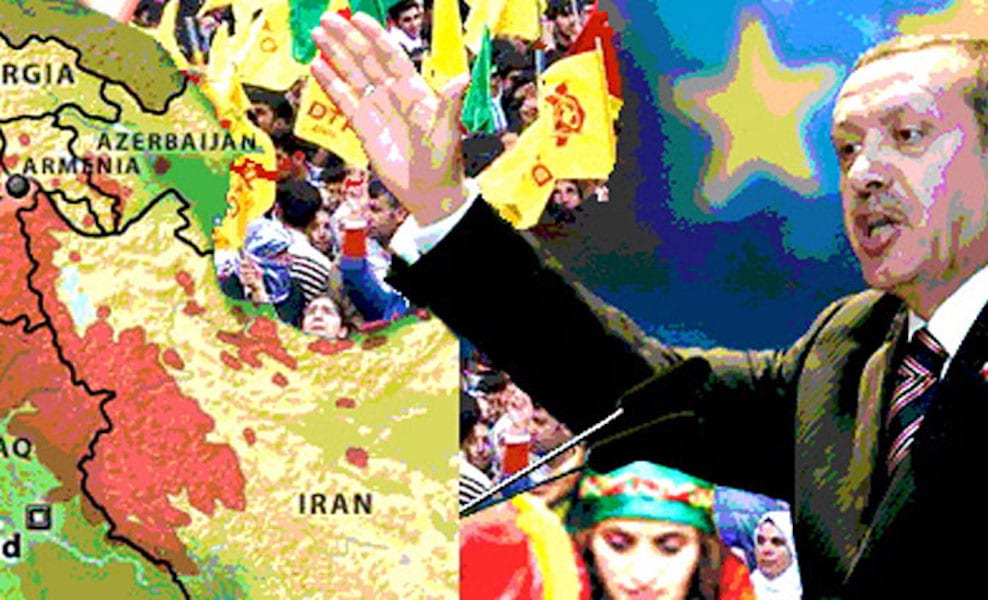By Rudaw
Turkey is concerned that in “one night” all of the gains made by the Kurdistan Region since the overthrow of the Baathist regime in 2003 could be lost, if the independence referendum is held and could lead to an Iraqi “civil war,” a senior Turkish presidential advisor revealed.
“We feel that Iraq has made a lot of gains in the past so many years since 2003; and these were rightful gains, the Kurdish people deserved those gains,” said Ilnur Cevik, a senior advisor to President Recep Tayyip Erdogan.
Cevik, who is also a Daily Sabah columnist, spoke to Rudaw correspondent in New York, Majeed Gly, on the sidelines of the UN General Assembly on Tuesday.
“Now we feel that in a matter of one night everything will be lost,” the Turkish advisor said.
He explained the “nightmare scenario” for the Kurdistan Region will result because Baghdad does not accept the referendum.
Iraq is currently ruled by a Shiite-dominated government and has at least 100,000 mostly Shiite paramilitary forces (PMFs), which were brought under the umbrella of Iraq’s armed forces in December 2016.
Kurdish Peshmerga officials have explained that it is difficult to coordinate with the Hashd in Hawija because they are not centralized.
Hashd and Peshmerga maintain neighboring frontlines in disputed or Kurdistani areas claimed by Baghdad and Erbil in areas like Shingal, Tuz Khurmatu, and the ISIS-held town of Hawija in oil-rich Kirkuk province.
The Turkish government is concerned that the referendum will lead to an Iraqi “civil war with the Shiite forces of Hashd al-Shaabi attacking the Kurds.”
Cevik was also concerned with Iran’s reaction and influence in Iraq.
He said he doesn’t understand why the Kurds in favor of holding the referendum don’t share in those concerns. He also cited a lack of “integration” in the Kurdistan Region with “Sulaimani going one way, Erbil and Duhok going one way.”
Duhok and Erbil are the stronghold of the Kurdistan Democratic Party, while Sulaimani is the stronghold of the Patriotic Union of Kurdistan and the Gorran or Change Movement parties.
Both the KDP and PUK are the two main parties behind the Kurdish independence vote, and are expected to hold a large rally in Sulaimani in favour of the referendum.
Gorran has not yet supported the vote, but does not oppose it, either.
“If anybody tells me that integrated administrative setup in Iraqi Kurdistan,” Cevik said, “well I’d tell them they are living on another planet.”
Turkey, France, and the United Nations are working to present an alternative to the Kurdistan independence referendum that will offer “guarantees” that the US-backed alternative failed so far.
Turkey in particular has said the territorial integrity of Iraq should be preserved. This was stressed in a recent phone call between Iraqi Prime Minister Haider al-Abadi and Turkish President Erdogan.
The Iraqi Supreme Court issued a temporary ruling on Monday to suspend the referendum. The Kurdistan Region’s foreign office head Falah Mustafa, however, told the Wall Street Journal that the vote will go ahead as the judiciary in Iraq has failed to respect the rule of law.
Baghdad considers the referendum unconstitutional. The Kurdistan government, however, claims the central government has violated at least 55 articles of the constitution, including Article 140 that was supposed to determine the fate of the Kurdistani or disputed areas such as the oil-rich province of Kirkuk by 2007.









